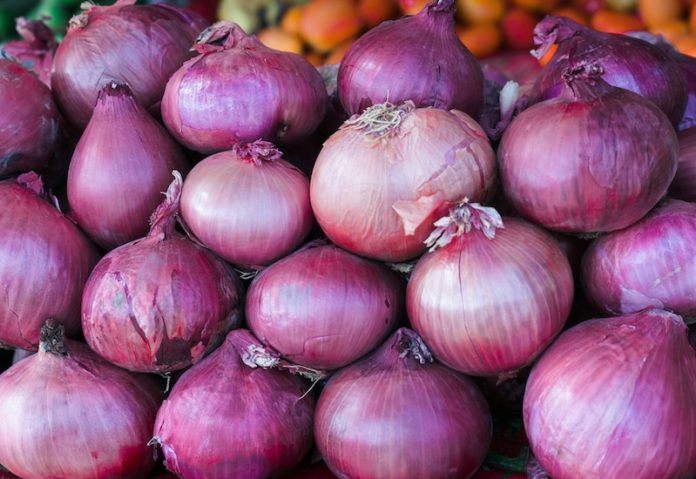
A recent study from the University of Bonn has found that an extract from red onion skin may help reduce high blood pressure in overweight and obese individuals.
The key ingredient in the extract is quercetin, a natural compound found in many fruits and vegetables, including red onions, kale, and capers.
Quercetin is part of a group of plant chemicals known as flavonoids, which have been linked to various health benefits, including heart health.
Quercetin has a slightly bitter taste and is often used as an ingredient in dietary supplements and foods. Previous research has shown that quercetin may help prevent heart disease, thanks to its ability to lower blood pressure.
The latest study aimed to explore the effects of quercetin from red onion skin extract on people who are overweight or obese and have pre-hypertension or stage I high blood pressure.
In the study, 70 participants were selected to take part. They were split into two groups: one group received a daily dose of 162 mg of quercetin from onion skin extract powder, while the other group was given a placebo.
The study lasted for six weeks, during which blood pressure measurements were taken before and after the treatment period.
The results showed that quercetin had a noticeable effect on reducing blood pressure, especially for those with high blood pressure.
For people in the high blood pressure group, quercetin reduced their systolic blood pressure (the top number in a blood pressure reading) by an average of 3.6 mmHg compared to those taking the placebo.
In addition, quercetin lowered both daytime and nighttime systolic blood pressure in people with elevated levels.
However, the study did not find that quercetin had any impact on other markers related to heart health, such as oxidation, inflammation, cholesterol levels, or glucose metabolism.
This suggests that quercetin’s benefits may be specific to blood pressure reduction rather than a broader effect on overall metabolic health.
The researchers concluded that taking a daily supplement of 162 mg of quercetin from onion skin extract could have a protective effect on the heart by lowering blood pressure.
For individuals struggling with high blood pressure, this could be a promising natural approach to managing their condition.
In addition to the findings on quercetin, other studies have shown that drinking tea and using herbal supplements may also help lower blood pressure.
For people interested in managing their blood pressure naturally, reducing added sugar in the diet and ensuring adequate vitamin D levels are other strategies that have been linked to better blood pressure control, particularly for those with diabetes.
This research was led by Verena Brüll and her team, and the findings were published in the British Journal of Nutrition. These results add to the growing body of evidence supporting the potential health benefits of natural compounds like quercetin in promoting heart health.
If you care about blood pressure, please read studies about unhealthy habits that could increase high blood pressure risk, and eating eggs in a healthy diet may reduce risks of diabetes, high blood pressure.
For more information about blood pressure, please see recent studies that early time-restricted eating could help improve blood pressure, and results showing 12 foods that lower blood pressure.
Copyright © 2024 Knowridge Science Report. All rights reserved.



